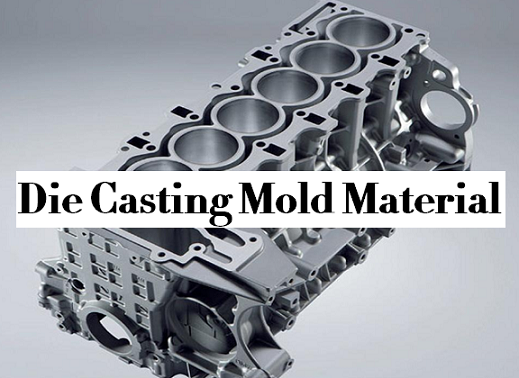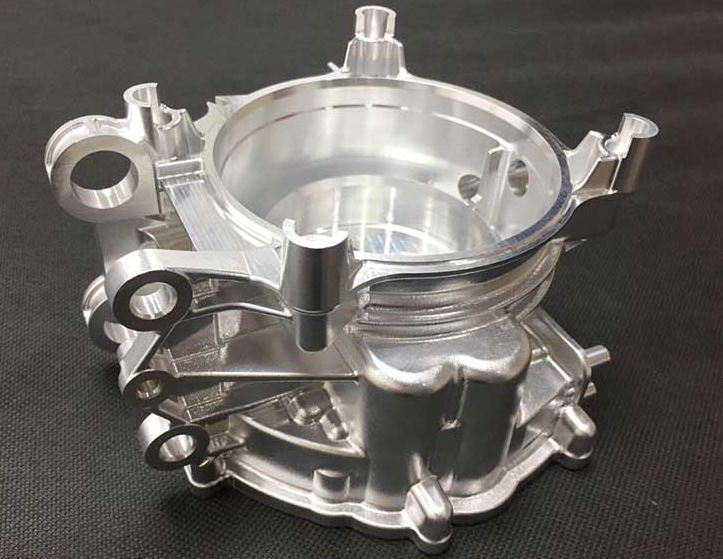10 Easy Facts About Alcast Company Explained
10 Easy Facts About Alcast Company Explained
Blog Article
Indicators on Alcast Company You Should Know
Table of ContentsAlcast Company for DummiesTop Guidelines Of Alcast CompanyNot known Factual Statements About Alcast Company The 30-Second Trick For Alcast CompanyAll About Alcast CompanyEverything about Alcast Company
The refined difference hinges on the chemical content. Chemical Comparison of Cast Light weight aluminum Alloys Silicon advertises castability by decreasing the alloy's melting temperature level and improving fluidness throughout spreading. It plays an essential role in permitting detailed molds to be filled accurately. In addition, silicon adds to the alloy's toughness and put on resistance, making it valuable in applications where toughness is critical, such as automobile components and engine components.It also boosts the machinability of the alloy, making it less complicated to process into completed products. In this method, iron adds to the total workability of aluminum alloys. Copper enhances electric conductivity, making it useful in electrical applications. It likewise improves corrosion resistance and adds to the alloy's total stamina.
Manganese adds to the strength of light weight aluminum alloys and boosts workability (Foundry). It is typically made use of in wrought aluminum products like sheets, extrusions, and profiles. The existence of manganese aids in the alloy's formability and resistance to splitting during construction procedures. Magnesium is a lightweight component that supplies strength and influence resistance to aluminum alloys.
The Ultimate Guide To Alcast Company
It allows the manufacturing of lightweight parts with exceptional mechanical residential properties. Zinc enhances the castability of light weight aluminum alloys and aids regulate the solidification process throughout spreading. It enhances the alloy's stamina and solidity. It is often located in applications where detailed forms and great details are necessary, such as ornamental spreadings and specific automobile parts.

The key thermal conductivity, tensile toughness, return strength, and prolongation differ. Select ideal raw products according to the efficiency of the target item created. Among the above alloys, A356 has the greatest thermal conductivity, and A380 and ADC12 have the most affordable. The tensile restriction is the opposite. A360 has the ideal yield strength and the highest possible prolongation rate.
Little Known Facts About Alcast Company.

In accuracy spreading, 6063 is fit for applications where detailed geometries and top quality surface area finishes are extremely important. Instances consist of telecommunication units, where the alloy's superior formability enables streamlined and cosmetically pleasing designs while keeping architectural honesty. Similarly, in the Lights Solutions sector, precision-cast 6063 parts develop stylish and efficient lights components that call for detailed forms and great thermal efficiency.
The A360 shows exceptional elongation, making it ideal for facility and thin-walled components. In precision spreading applications, A360 is fit for sectors such as Consumer Electronic Devices, Telecommunication, and Power Tools.
All About Alcast Company
Its special properties make A360 an important selection for precision casting in these sectors, boosting item toughness and high quality. Light weight aluminum alloy 380, or A380, is go now a widely made use of spreading alloy with a number of unique characteristics. It uses exceptional castability, making it an excellent option for precision spreading. A380 displays excellent fluidness when molten, making certain elaborate and in-depth molds are accurately recreated.
In accuracy spreading, aluminum 413 radiates in the Customer Electronic Devices and Power Tools markets. This alloy's exceptional rust resistance makes it an outstanding selection for outside applications, ensuring resilient, long lasting products in the discussed industries.
Little Known Facts About Alcast Company.
Once you have decided that the aluminum die casting procedure appropriates for your project, an essential following step is picking the most proper alloy. The light weight aluminum alloy you choose will significantly influence both the spreading process and the properties of the end product. Because of this, you need to make your choice carefully and take an educated strategy.
Identifying the most appropriate aluminum alloy for your application will mean considering a large range of attributes. The very first classification addresses alloy attributes that affect the production procedure.
The 25-Second Trick For Alcast Company
The alloy you choose for die casting directly impacts numerous aspects of the casting process, like exactly how simple the alloy is to function with and if it is susceptible to casting problems. Warm breaking, additionally called solidification cracking, is a regular die spreading problem for aluminum alloys that can cause inner or surface-level splits or fractures.
Certain light weight aluminum alloys are a lot more prone to warm splitting than others, and your option should consider this. It can harm both the cast and the die, so you ought to look for alloys with high anti-soldering properties.
Rust resistance, which is already a remarkable attribute of aluminum, can differ substantially from alloy to alloy and is a necessary characteristic to consider depending on the ecological problems your item will be revealed to (Foundry). Wear resistance is an additional residential property typically looked for in aluminum products and can distinguish some alloys
Report this page